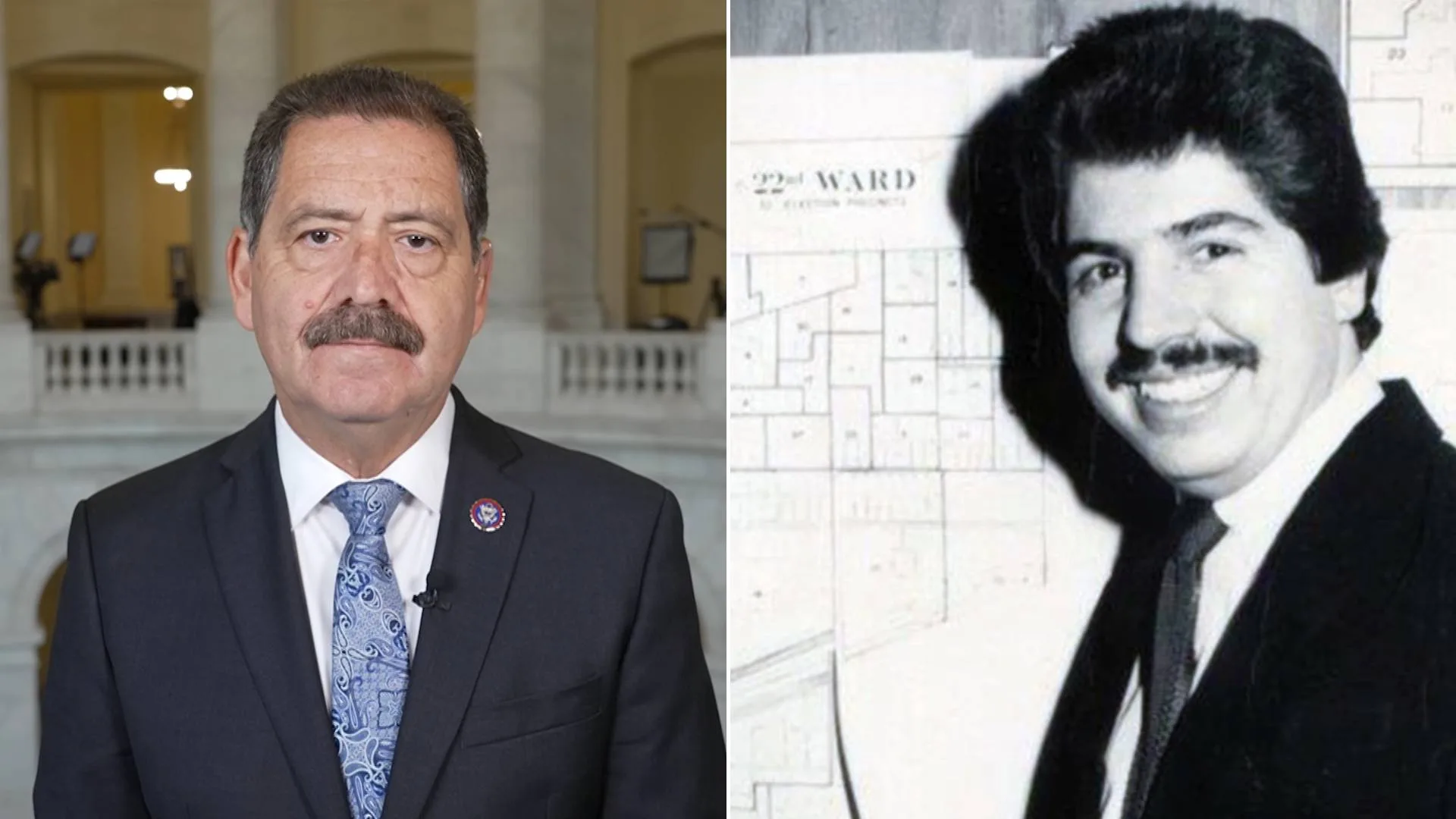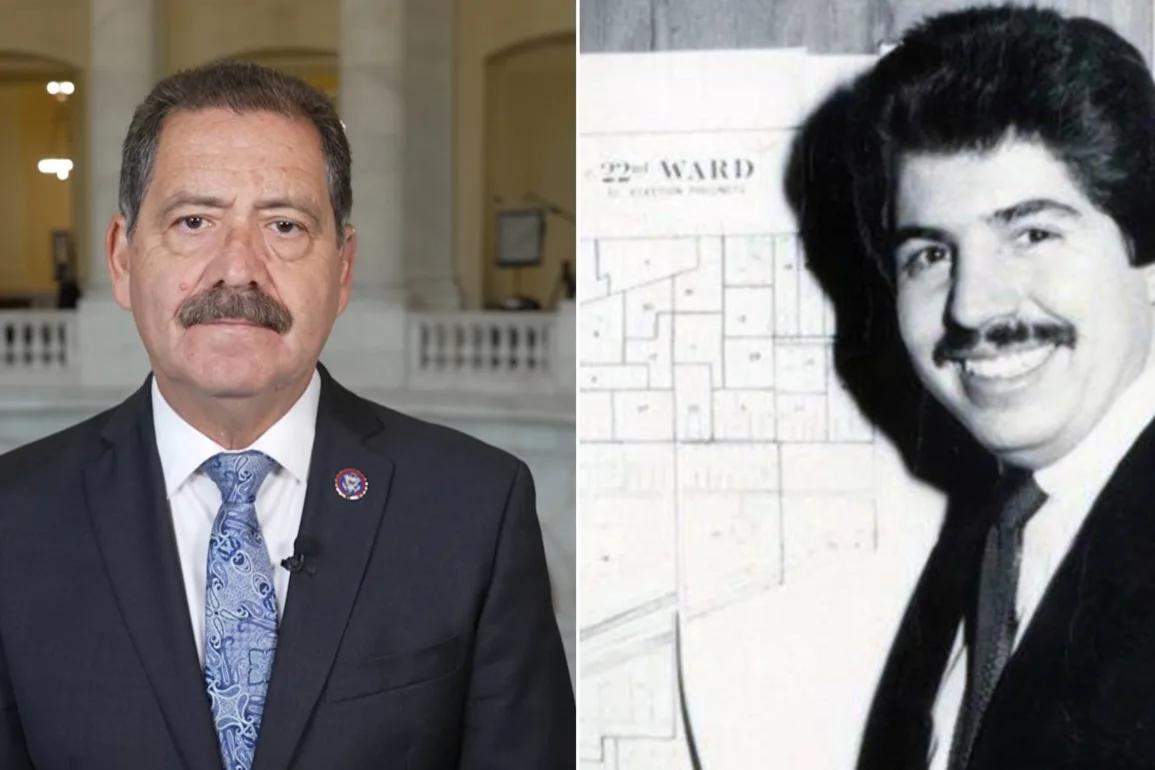
This is a rush transcript. Copy may not be in its final form.
AMY GOODMAN: As we stay with Congressmember García, we’re continuing our coverage related to National Hispanic Heritage Month, which goes from September 15th to October 15th — September 15th, the date that marks the anniversary of independence for Costa Rica, El Salvador, Guatemala, Honduras and Nicaragua. Mexico celebrates its Independence Day on September 16th, Chile on September 18th.
Well, this past June marked the 40th anniversary of what many call the assassination of a leading Chicago labor and community activist, Rudy Lozano, who was Congressmember García’s friend and political mentor. Starting in the ’60s, Rudy Lozano led walkouts to demand better public school conditions, more Latinx representation in the curriculum, also active with the Center for Autonomous Social Action, known as CASA, to organize migrant workers. Rudy Lozano was Midwest director of the International Ladies’ Garment Workers’ Union, played a key role in building Black-Brown unity to elect Harold Washington as Chicago’s first African American mayor. Tragically, he was shot dead in his own home in 1983 when he was just 31 years old.
So, this past June, Chicago Congressmember Chuy García, our guest, honored Rudy Lozano’s life and legacy in a speech on the House floor.
REP. JESÚS ”CHUY” GARCÍA: I rise today to honor a great organizer and community activist, a leader who fought the Chicago machine and built multiracial and intergenerational coalitions, my friend, political mentor and compadre, Rudy Lozano. … A labor organizer, he fought for workers’ rights. As a community activist, he fought for justice for immigrant families. Rudy brought together diverse communities to elect Harold Washington, Chicago’s first Black mayor, in 1983. Rudy knew political empowerment was vital to improving community conditions. My presence in Congress and the growing number of progressive Black, Latino and Asian American elected officials in Chicagoland represents the enduring impact of his legacy. Let’s continue his legacy by working in coalition to ensure a more inclusive politics for all. ¡Que viva Rudy Lozano!
JUAN GONZÁLEZ: That was Congressman Jesús “Chuy” García talking in Congress about the legacy of Rudy Lozano. Congressman, if you could talk about your friend and your fellow activist in Chicago, his importance, the role of CASA, and why that legacy needs to be remembered?
REP. JESÚS ”CHUY” GARCÍA: So, Rudy Lozano is a product of movements in the U.S., and certainly in Chicago. He was forged during the civil rights movement, during the movement opposing the unjust War in Vietnam, during the time when the Black Panthers were making a significant impact in the Black community. Brown Berets were organizing for dignity and justice in the Southwest. Those movements were also present in Chicago through the Brown Berets and the movement to improve our schools, movements that said, “Our immigration system is broken, and we need immigration reform in Washington.” People should have a pathway to citizenship. Workers need to be organized so that they can bargain at the table and improve their working conditions, earn better wages, provide for their families, be able to retire — things that are going on in our midst as we do this interview.
We celebrate Hispanic Heritage Month in Chicago commemorating and lifting up the contributions of activists like Rudy Lozano, who were responsible for movements that have empowered Latino, African American, Asian and other discriminated communities over a 40-year span. In Chicago, the organization that Rudy helped found — he was our founding president — continues to be now the oldest progressive electoral and activist-oriented political organization in Chicago. We are bringing up the next generation of leaders that we have helped elect to the Chicago City Council, countywide in Cook County, to the state Legislature both in the House and the state Senate, as well as my new colleague in Congress who joined us this year, Delia Ramirez. These are all expressions of the movement for political empowerment, for progressive coalition building and, most importantly, for advocating and pushing for the adoption of progressive policies that bring equity and equality to all people.
That is the life and the meaning of the legacy of Rudy Lozano and his contributions in Chicagoland. It is a part of why Chicago in 1983 broke a race barrier and elected the first African American mayor, who was also a wonderful progressive. And it’s also a part of the history and why Chicago has just elected another progressive mayor, and one who is also African American. And we’ve changed the climate in politics in Chicago. We disbanded the old political machine that was rooted in racism and sexism and corruption, and replaced it with a new forward-looking, uniting progressive movement.
AMY GOODMAN: And I wanted to end and get your comment on — end with Bert Corona, who started CASA, the Mexican American labor organization, which stood for Center for Autonomous Social Action. This is Bert Corona speaking at an antiwar rally in the early 1970s.
BERT CORONA: Thousands of Chicano youth are killed every year in this country by policemen’s guns, and there hasn’t been one single policeman ever prosecuted or brought to the bar of justice for having shot a Mexican kid in the back. You must understand that this is the request and this is the demand for equality of participation, for the bringing together of Black and Brown and Asian and white people, with Brown people, in an effort to bring this war to an end, because, as Chicanos say, there’s a war in Southeast Asia, but there’s a war against me every day here in the barrio. There’s a war with welfare, with the county hospitals and with the schools and with the drug pushers and with the Migra and with the exploiting bosses and with all those forces that mean the American way of life for us. And don’t come back to us and tell us, “If you don’t like it here, why don’t you go back where you came from?” We could say the same thing to those who tell us that: “Why don’t you all go back to Europe? That’s where you came from. Why come here and exploit us?”
JUAN GONZÁLEZ: That was Bert Corona, the founder of CASA, talking in the early 1970s against the Vietnam War. And, of course, CASA produced many leaders that went on to play influential roles in the Latino community. Antonio Villaraigosa, the first Latino mayor of the modern era in L.A., was also a member of CASA, as was Rudy Lozano. And, Chuy García, the importance of CASA as an organization that raised the consciousness of so many young Latinos?
REP. JESÚS ”CHUY” GARCÍA: Well, the speech that you just heard, the remarks of Bert Corona, are a speech that any one of us could be giving today as we stand with the United Auto Workers in their efforts to secure a better, equitable contract and help make a just transition in our energy policy and as it relates to electric vehicles, etc. This is the legacy that many of us are heirs of, a legacy that we are seeking to create and build for the future. These are the lessons that we have shared with young people who want to make a difference, whether it’s in local politics, in national politics or international politics.
The issues that we are grappling with are urgent. They require the action of people who are forward-thinking and forward-looking and that push back against the type of extremist policies that MAGA Republicans, who want to shut the government down in the next few days, are trying to enact here, immigration measures that double down on building a wall, that double down on detention, and that seek to dismantle systems of asylum that have been a part of our national pastime and what makes our country so unique.
So, the words of Bert Corona, Rudy Lozano remain most meaningful in our times as we grapple with climate change, as we grapple with immigration and fair migration, and as we grapple on how to make the planet more sustainable for future generations, and as we struggle for justice for everyone.
AMY GOODMAN: We want to thank you, Congressmember Jesús “Chuy” García, Democrat representing Chicago, Illinois, speaking to us from the Cannon Rotunda, from Congress. Who knows how long it will remain open for this week? Thanks so much for being there, as we continue to observe National Hispanic Heritage Month.
Next up, President Biden makes history by becoming the first sitting president to stand with striking autoworkers on a picket line. Stay with us.


